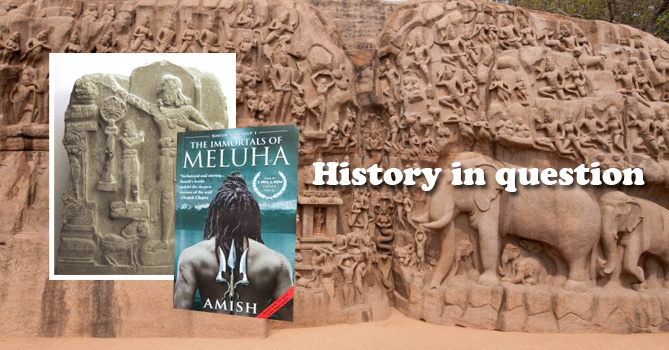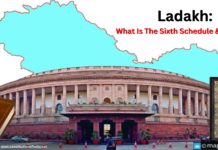 “Stories you read when you’re the right age never quite leave you. You may forget who wrote them or what the story was called. Sometimes you’ll forget precisely what happened, but if a story touches you it will stay with you, haunting the places in your mind that you rarely ever visit.”– Neil Gaiman
“Stories you read when you’re the right age never quite leave you. You may forget who wrote them or what the story was called. Sometimes you’ll forget precisely what happened, but if a story touches you it will stay with you, haunting the places in your mind that you rarely ever visit.”– Neil Gaiman
Children and young adults are particularly impressionable when it comes to tales of mythology and history. The lessons from these tales are often carried into adulthood. This is perhaps why children are told stories of history and mythology. The recent spate of novels, movies, and television series based on mythology are, however, offering alternative theories and in some cases distorting historic facts. Many think this widens the perspective of the audience while many fear that history and mythology may be lost in this media extravaganza.
Mythological Books with a Twist
In the past few years, there has been a spate of mythological books that have flooded the market. Before we put it down to any renewed interest in religion of mythology, it needs to be said that these books are retellings of often famous mythological tales such as the Ramayana and the Mahabharata from alternative perspectives. Not only this, these books tend to change the context of famous mythological episodes and many Gods are reduced to erring mortals. Some of the famous books are:
The Immortals of Meluha – Amish Tripathi’s powerful retelling of the story of Shiva and Sati in the context of a Tibetan empire and its conflict with neighboring empires. Very popular and well received, it has two sequels.
Asura, Tale of the Vanquished – Anand Neelakantan’s bestseller retelling Ramayana from the perspective of Ravana, the highly cultured Dravida king. Also, in this, Sita is Ravana’s daughter.
Ajaya, Roll of the Dice – Another Anand Neelakantan bestseller that offers plausible explanations to all the supernatural phenomenon in the Mahabharata and also presents the conflict in a very real-world manner. Followed up by the sequel Rise of Kali.
Palace of Illusions – Another take on the Mahabharata – Chitra Banerjee Divakaruni’s award winning novel is written from Draupadi’s perspective.
The Krishna Key – The Rozabal Line – It is Ashwin Sanghi’s take on the story of Jesus and his crucifixion.
Open to Interpretations
Mythology based books that offer alternative contexts and explanations have always known to question familiar lines of religious thought. It is not a matter of surprise, then that they attract many critics who question such gross misinterpretation of popular mythology and fear corrupting future generations. In the past few years, however, critics have been few and these books have attracted many awards and followers. Authors, however, do say that mythology was always subject to interpretation and exists only to teach us the lessons that we want to learn from them. They say that their books have brought to light the many inconsistencies and grey areas that already exist in popular mythology.
Top Historical Serials on Indian Television
The Sword of Tipu Sultan – Sanjay Khan’s mega series The Sword of Tipu Sultan became one of the first historical tele serials. Aired on Doordarshan National, it became a bit hit.
Chanakya – Chandraprakash Dwivedi’s Chanakya went on air in the 1990s on Doordarshan National and became one of the most-watched series of its times. It recounted the story of Chanakya, Chandraguta Maurya’s chief adviser and kingmaker.
The Great Maratha – Another Sanjay Khan mega series, based on the life of Mahadaji Shinde and aired on Doordarshan National.
Jhansi Ki Rani – Based on the life of Rani Lakshmi Bai, this series was aired on Zee TV and produced by Dharmesh Shah (Contiloe Telefilms). It gained an impressive TRP.
Dharti Ka Veer Yodha Prithviraj Chauhan – Aired on Star Plus and produced by Sagar Pictures, this was another long series based on the life of Prithviraj Chauhan.
Veer Shivaji – Another historical series by Contiloe Telefilms, Veer Shivaji was aired on Colours TV and based on the life of the emperor Shivaji.
Jodha Akbar – This series produced by Balaji Telefilms after the smashing success of a movie by the same name was aired on Zee TV.
Poor Research Wrecks History
One of the greatest objections against these wildly popular historical television serials and even against historical movies is that of inaccuracy and poor research. Most of these scripts highlight romance and trivialize the underlying socio-economic issues of the times. One of the greatest examples of this is the nature of Tipu Sultan’s reign. Many historians speak of Tipu’s intolerance of Hinduism and his persecution of Hindus while the television series has created an image of a benevolent king who just about followed Hinduism as well as Islam. Children and young adults who follow these series do grow up with a skewed take on history and fail to understand legacy issues from the past. Prior to the release of the movie Jodha Akbar, largescale protests were staged in Rajasthan. Protesters believed that none of Emperor Akbar’s wives was named Jodha Bai. They also reiterate that local history records that Jodha Bai was Salim’s wife and Akbar’s daughter-in-law. None of the thousands who watched the movie will agree, though. Poor research may also be damaging for communal harmony and social order. Depiction of Hindu-Muslim violence and incidents such as demolition of a temple and construction of the Babri Masjid may also disrupt peace in the present.
History is the Winner’s Ally
While it looks like the debate between historians and creative interpreters of history and between religious puritans and media shall go on ad infinitum, there is one reality that we cannot deny. History, at least history from olden days, does tend to favour the victor of any struggle, the ruler of the land, or the patron of artists and historians. This makes it as subjective as the books, movies, and television series in terms of accuracy. In India and in many other countries of the world, kings patronized their court historians who would leave records glorifying their reign. With proper guidance, children and young adults exposed to alternative theories in mythology and historical inaccuracies in television serials will understand that there are many perspectives to any historical or mythological episode. It will do our budding citizens well to take such a multi-faceted perspective. Not only is it likely to develop more tolerance, it shall also eliminate bias and teach them social harmony. In a vast and varied country such as ours, it is this understanding and acceptance of the conflicts of the past that we must rely on to be able to constructively work towards engineering a better future for everyone.



